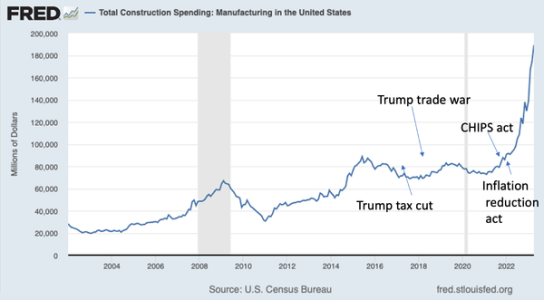I think we can agree here.
Let me talk about something person.
I work in Corporate America in a major Fortune 200 company in Middle Tennessee. I know people in every company in the area:
Nissan, HCA, Mars, Electrolux, Accenture, Bridgestone, E&Y, Amazon, Tracker Supply, Dollar General, Cracker Barrell, GM, Brooksdale, BMW (their in Chattanooga but close enough), etc.
I interact daily in my job with people that don't live in the United States. There is a real threat here. You take any of these industries and you can see layoffs going on last 5-6 months, downsizing, closing plants, etc. It has been all over the news in Middle Tennessee recently. I work in Procurement and it is sad. When I first started, I would see vendors from all over the globe (Europe, LA, USA, Japan, Korea, China, etc.). Now it is mostly just China, Thailand, Vietnam, and India. Some USA vendors are battling to stay competitive using automation. This isn't good for the world economy. All it does is lead to layoffs, financial struggles for the existing companies, and drive the labor rates down to the levels you see in those nations.
Something had to be done. The Automotive Industry is getting battered right now by low-cost Asian goods. Go look at the manufacturing plant closures and downsizing by all the major Manufacturing OEMs throughout Europe, Latin America, and North America.
My mother was a high executive at one of the major manufacturing companies listed. She and I both discuss that it isn't a fair playing field. These Asian nations get money from their government, manipulate currency to cheapen their products, rely on very low cost labor, and steal IP. They run their competition out of business globally and then they have you in an almost monopoly-like setup that they can take advantage of. Corporate Executives constantly put pressure on you to cut costs. It is tough. Really tough. I feel drained every day.
Secretly, a lot of us are cheering on tariffs even if it is a major headache with reporting, planning, and budget. Our company is taking a major hit. One area where Trump really messed up is that there should have been more time giving before implementation and any existing orders should be exempted. I have products that were ordered in 2024 that will be impacted. You can't resource orders that are 80% to 90% complete. In all past tariff announcements, there was typically a 12-month period before implementation.
I do think bad Corporate leadership plays a part. Interestingly, the media always blames CEOs. The CEO just does what the shareholders wants. It is the shareholders that continue to push for more and more profits instead of investing that capital into their people and company. The media should be citing to greedy share holders rather than CEOs (although on some occasion the CEO can be an owner or majority/major shareholder).
I probably gave too much transparency but if you could see the numbers that I see in my industry and talk to the people that I talk to, you would have a different perspective.



